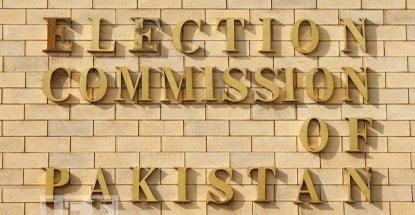
Election 2013 provides the Election Commission an historic opportunity to find permanent solutions to its problems and be its own Messiah

The astonishing fact, however, is that the Chief did all this using one small legal window -- the provision that the court could take up any matter suo moto. An even bigger surprise is that the provision has been there in the statutes since they were enacted but no judge before him had the will and the ability to fashion it into such a sharp and effective tool.
The matter is a perfect demonstration of how much the institutional efficiency is dependent on legal spaces available to it, in our specific governance context, and how is it related to the will of the people running the institution.
A more relevant example is provided by neighbouring India where the Election Commission had had a reputation of just another regular state institution before T.N. Seshan became its chief in 1991. The hyper-active bureaucrat of India described by his detractors as "authoritarian, egotistic, eccentric, and publicity-hungry" turned the Commission around and made it the most reputable election body in the world during his five-year term. In a 2012 interview with , he said, "It was not that I introduced a new reform in the system. In fact, I didn’t even add one comma, semicolon, or a full stop to the Act. Whatever was said in the Act, I implemented."
This is, however, not to imply that all that could be done to reform the election system in Pakistan is to wait for a Messiah. There certainly are a lot of enabling measures that can help the Commission find the self confidence that it dearly lacks. The most important among them is to redefine its relationship with judiciary.
It is a highly erroneous perception that retired judges, who supposedly have non-partisan repute and are widely respected, are best suited to conduct elections. All stakeholders need to acknowledge that elections are purely an administrative exercise and judges do not qualify in any manner to lead the job. Moreover, the judiciary performing both the tasks, that is administration of elections and then adjudicating upon the disputes arising out of it, forms a clear case of conflict of interest.
What is, in fact, needed is to insert a buffer between the judiciary from the Commission and afford the latter a kind of impunity. Most of the elections related disputes need quick and on-the-spot fixing while our justice system is attuned to take eons to decide upon even petty matters. The painfully lengthy delays in administration of justice are cleverly exploited by the contesting parties to make the final court decisions politically irrelevant.
The heavy involvement of judiciary in election matters is a huge drag on the Commission’s ability to act quickly and take steps that can have a direct impact on the election outcome. The Commission needs independence from judiciary and that can only come through a negotiated settlement between the two.
The other shackle that the Commission needs to break free from is the seconded staff that is deputed from other government departments to perform the electoral chores at the constituency and the polling station levels. The Commission, of course, cannot have all the required personnel on its rolls but it can, at least, define a new framework for its engagement with the deputed staff. The Commission needs legal and administrative instruments to wean off the deputed staff from their political affiliations, check its lethargic deficiencies, and be able to exercise better control over their utilisation.
The Commission now has a skeleton staff and offices at each district whose full time responsibility is to look after electoral matters. It would take some creativity to consolidate this strength and then multiply it manifold by combining it with the deputed staff. For example, the Commission can do away with its obsession of organising the entire national and provincial elections on a single day. It strains its capacity and dilutes its control. It can easily switch over to a system of phased elections where it can put to use its force in a more focused and wise manner and get better results.
Such innovations can be expected from an institution that has sunk its roots deep into the society and the polity. The irony in Pakistan, however, is that elections here have always happened amidst, and mostly as a result of, a political crisis and a lot of the desired steps were put off simply because the time was short or the situation was too precarious to allow any experimentation. This is the reason why basic matters, such as the electoral rolls or the decisions on where to set up polling stations have remained a perennial problem.
The good news, however, is that the 2013 elections, being the first ever democratic transition, proved to be a break from this melodramatic past. This provides the Commission an historic opportunity to find permanent solutions to its problems and be its own Messiah.